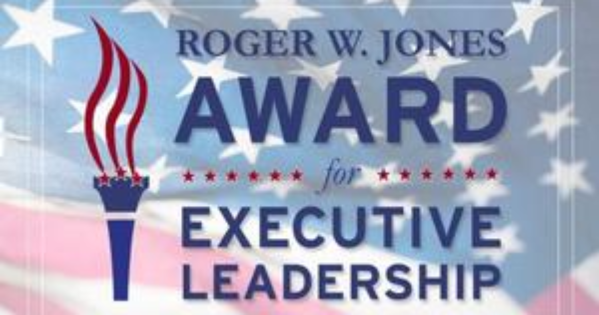Federal Public Servants Honored with Roger W. Jones Award for Executive Leadership

Five dedicated federal executives were celebrated for leadership in government at an online ceremony Oct. 21 hosted by the AU School of Public Affairs (SPA) and the Key Executive Leadership Programs.
The winners of the 2020 Roger W. Jones Award include:
- Matthew Alessandrino, assistant inspector general for investigations, Federal Deposit Insurance Corporation, Office of Inspector General;
- Brad Bunn, director of human resources, Defense Logistics Agency;
- Lois Greisman, associate director for marketing practices, Federal Trade Commission;
- Eileen McDaniel, executive director, Office of Management, Office of Medicare Hearings and Appeals, Department of Health and Human Services; and
- Kimberly Walton, executive assistant administrator, Transportation Security Administration;
The honor, which has been awarded since 1978, recognizes Roger W. Jones, a U.S. government official who served seven presidents over 43 years, in positions such as deputy secretary of state and chairman of the Civil Service Commission.
“This prestigious award is reserved for public servants who demonstrate a commitment not only to mission, but to developing and inspiring those whom they lead,” said Patrick Malone, director of the Key Executive Leadership Programs. “This is a celebration of the most talented, diverse, educated, [and] committed workforce of any government, anywhere in the world.”
SPA Executive in Residence Sasha O’Connell moderated a discussion with the honorees about their careers, trends in public service, and the qualities of effective leadership.
“You have to know the mission, have a vision, and be held fully accountable. After that, it is all about the people,” said Greisman, whose led efforts at the FTC to shut down financial and medical product scams pitched online and over the phone. “You’ve got to create an environment that promotes learning, fosters creativity, and encourages innovation.”
During the pandemic, agencies effectively shifted to remote telework and continued serving the public, the panelists said. The efficacy of this shift may have a lasting impact on the use of technology and reducing the federal real estate footprint.
“The future is going to be complex and uncertain. The federal workforce is going to have to be resilient,” Walton said, who praised the training and dedication of public servants working for the greater good. “We will be ready. Our workforce will be more diverse [and] multigenerational, and there will be a need to reach into the private sector to make it easier for people to come in.”
McDaniel anticipates that artificial intelligence and machine learning will help agencies better predict workloads and target resources where they are most needed in real time.
“Public service will be more technology-driven as we move into the next generation,” McDaniel said. “It will be more efficient and nimble.”
In response to COVID-19, Bunn said his agency was a major player in providing personal protective equipment and delivering respirators.
“I think the future is bright. I see of lot positives––despite the challenges we faced this year,” said Bunn, a human resources practitioner focused expanding the pipeline of public servants. “If the global pandemic has shown us anything, it’s that our federal government can be responsible, agile, and innovative to bring forth solutions.”
Alessandrino, who was recognized for building an investigation team working complex financial fraud crimes at the FDIC, said he always wanted to work for the government. While civil service was not a popular career path when he graduated from college 30 years ago, he believes attitudes are changing among young people.
“It’s not an afterthought if they don’t get something else,” Alessandrino said. “The work we are doing is so impactful and important and [recent college graduates] recognize that. I think they are excited about coming to work for the government. I know I was.”